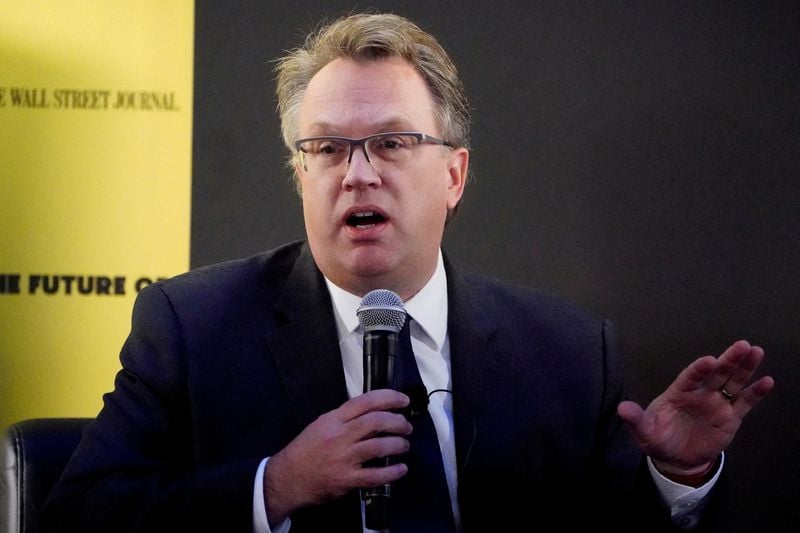By Michael S. Derby
(Reuters) -New York Federal Reserve President John Williams reiterated on Thursday in a television interview his belief that more interest rate rises will be needed to bring down overly high levels of price pressures.
“I still think we have a ways to go in terms of where the fed funds target is and where we need to get it to next year in order to get the sufficiently restrictive stance” of monetary policy needed to lower price pressures, Williams said in a Fox Business Network interview.
As to whether the Fed can raise rates next month in an increment smaller than 75 basis points, Williams was non-committal, but noted “slowing the pace” of rate rises would simply mean “maybe stepping down one step” in the effort to get rates up to the level needed to cool price pressures.
Williams’ interview followed a day after Fed chair Jerome Powell opened the door to the U.S. central bank slowing down on rate rises. Markets firmly expect that after a string of 75-basis-point increases the Fed will shift down to a half-percentage point rise when the rate-setting Federal Open Market Committee next meets on Dec. 13-14.
Powell also said inflation has yet to fall meaningfully, which could mean the Fed has to boost rates to a higher point than it expected when it last provided forecasts.
In September, Fed officials penciled in a peak 4.6% federal funds rate in 2023, relative to the current level of between 3.75% and 4%. They will update that forecast at their next meeting. Some Fed officials have pointed to the possibility the Fed may reach and hold at around 5% next year.
In comments on Monday, Williams said it is possible the Fed may find space to lower rates in 2024.
Williams spoke on the same day the government released data showing a moderation in inflation. In October, the Fed’s preferred price pressure gauge rose by 6% from the same month a year ago, down from the 6.3% annual rise seen in September.
“Inflation, first of all, is the number one problem we’re facing in terms of monetary policy. It is far too high,” Williams said.
Lowering inflation back to 2% will “take a good couple of years,” he said.
But he added: “I expect to see a pretty significant decline in inflation next year as supply chain issues improve, as we see the slowing economy, the economy getting into better balance.”
(Reporting by Michael S. Derby; Editing by Chris Reese and Deepa Babington)
